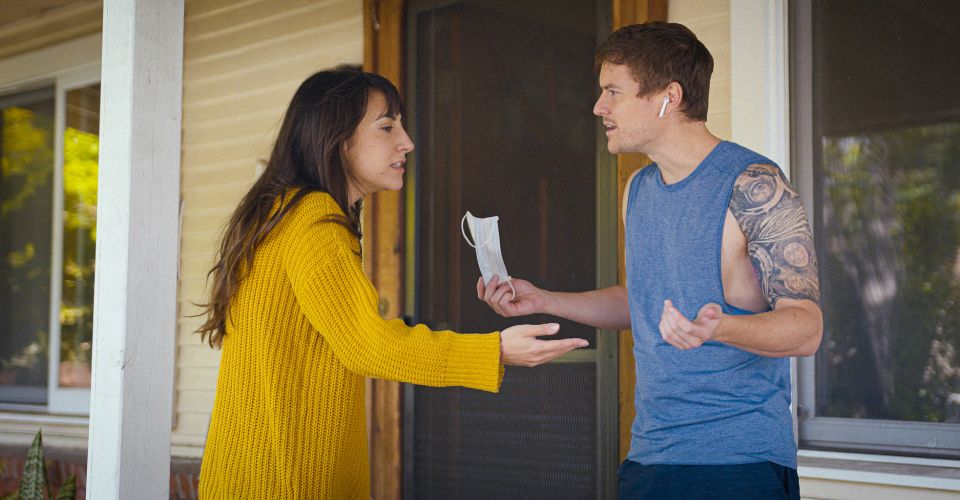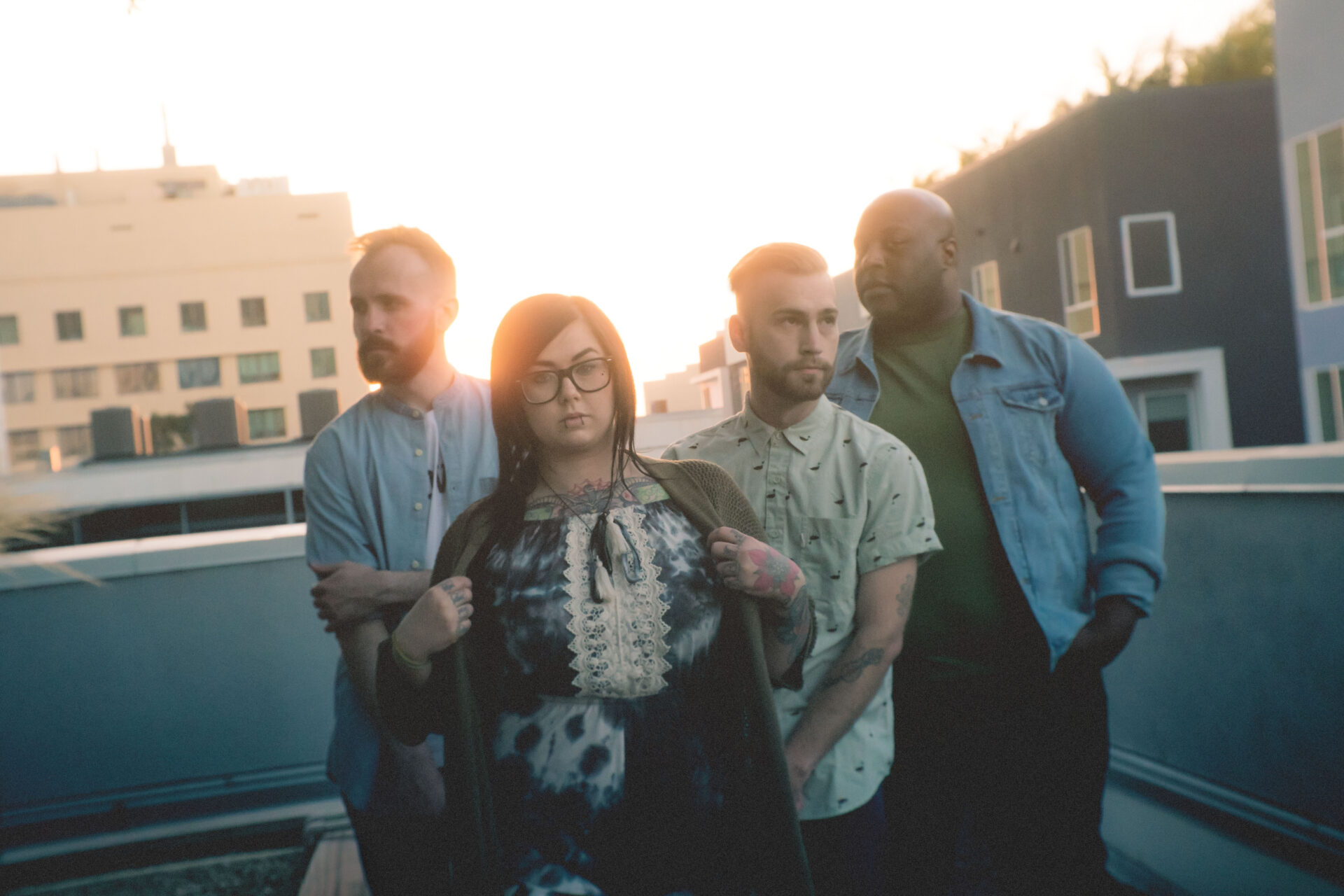Nick (Ben Coleman) and Leah (Ali Vingiano) have been a couple for four years and are living together. Nick is an aspiring actor while Leah works in the airline industry. One night, while Nick is rehearsing a script for an audition, Leah comes home after a long day of work. A fight happens between them where seemingly all their problems spill out and Leah wants to break up. However, things aren’t as easy as a clean split. This happens on the eve of the COVID-19 shutdown in California. So, newly single Nick and Leah are forced into quarantine together while this wound is still fresh.
The world outside the movie has recently passed a year anniversary concerning the coronavirus pandemic. Where we are all collectively reminiscing about how things were and what we’ve lost. Co-directors and writers Henry Loevner and Steven Kanter structure The End Of Us in blocks over a 60-day period. They place Nick and Leah’s characters through a swath of scenarios that almost eerily resemble what we’ve been through. Either from a break-up or the first days of the pandemic. Right from the start, the forced quarantine only projects what’s wrong in their recently expired relationship. Pre-pandemic, it’s hinted that Leah hyper-focused on her work, and it may have been an escape from what was at home. Nick is more free-spirited, per se. He doesn’t really operate within a structure as she does. Leah becomes hyper-vigilant about contracting the virus, staying on top of Nick.
These characters go through a period of awkward interactions and passive-aggressiveness. The ‘break-up’ period is magnified tenfold. Loevner and Kanter imprint what’s going on in the outside world in the house, which leads to changes. Leah is a part of job layoffs. Already experiencing the anxiety of turning 30, it sets her off into a news binge that makes her sick. It leads to a funny exchange with a doctor, inadvertently turned therapy session. She has to contend with being single and not being so tied to her job. Nick undergoes personal changes as well. He more so chooses to be present and not let the dread of the pandemic mess with him.
As they are going in these different directions, they momentarily reconnect. Nostalgia for the good times will do that. However, as the movie goes on, it shows that the person you’re becoming may not be the best for where you’ve been. These progressions that they undergo will not benefit the relationship that hit its expiration date.
The End Of Us manages to hit those post-breakup rom-com beats within the current scope of the times. However, you don’t expect a magical ending where they have an epiphany to get back together. If anything, the pandemic only shows them that their time together is long gone. There’s only a sign of happier times through Polaroid pictures earlier in the film. Nick is a little inconsiderate of Leah’s feelings. Leah may have exited the relationship mentally a while ago and stayed because it’s what she knew. While the audience sees the boiling point, we’re left wondering where things went left.
Nick chooses an alternative career path and is thriving in learning new things. Meanwhile, Leah dates her co-worker. Obviously, some jealously and hard feelings come back around that lead to the overall break. On Nick’s side, at least. The relationship feels like an escape for Leah, more than a romantic connection. While they try to feel around their living situation, the audience may feel that this is inevitable. Even in conversations with friends, there’s a division. Leah’s friend beckons her not to go back to Nick while Nick’s friend, Hector (Gadiel Del Orbe). You never get a feeling that they should be together, and that might be what Loevner and Kanter are going for.
The pandemic is not necessarily a platform to patch things up. It’s only a mirror for things that weren’t working. In fact, Nick and Leah become better people for the current times once they stop living together. There are a lot of points where The End Of Us may hit a little too close to home. It’s not to say that it’s to the movie’s detriment. Quite the contrary – although things have gotten a little better, we are still living in what Nick and Leah are going through. This film does a good job of depicting how the time in quarantine can change who we are as people. It certainly has made the collective look within and sometimes, that means you have to shed what you know.
Photo Credit: SXSW













